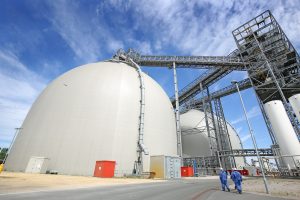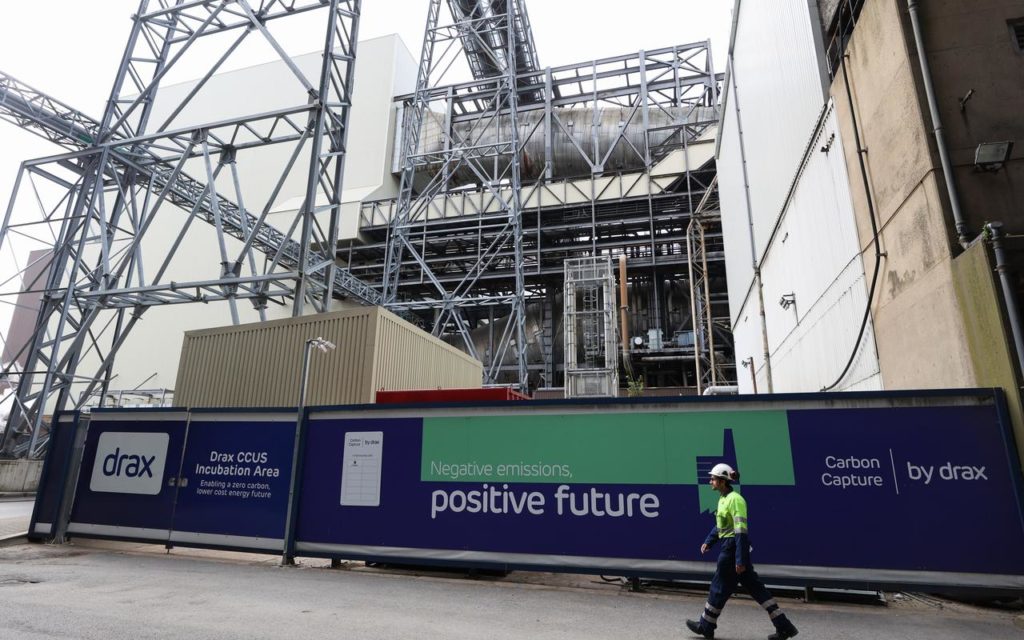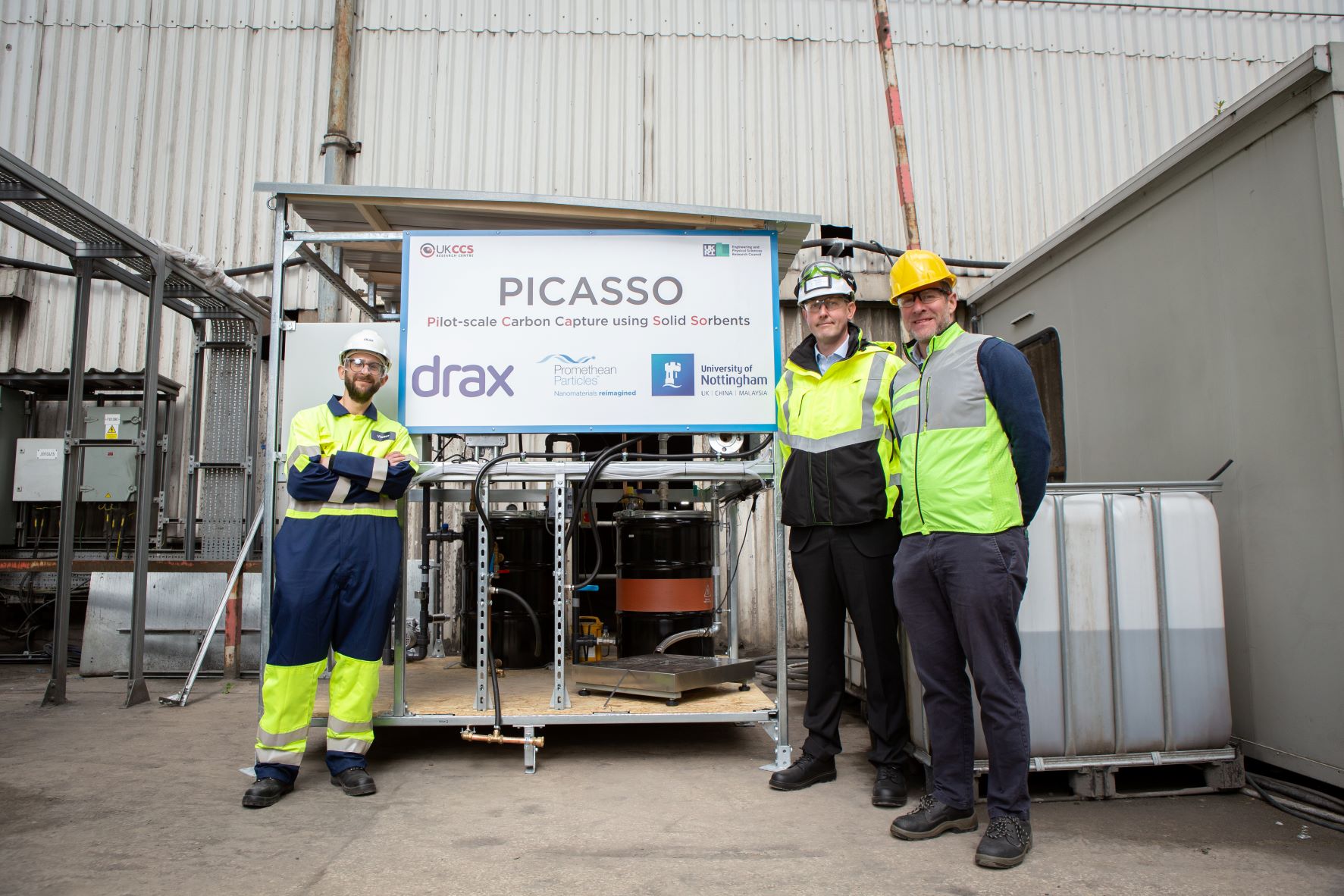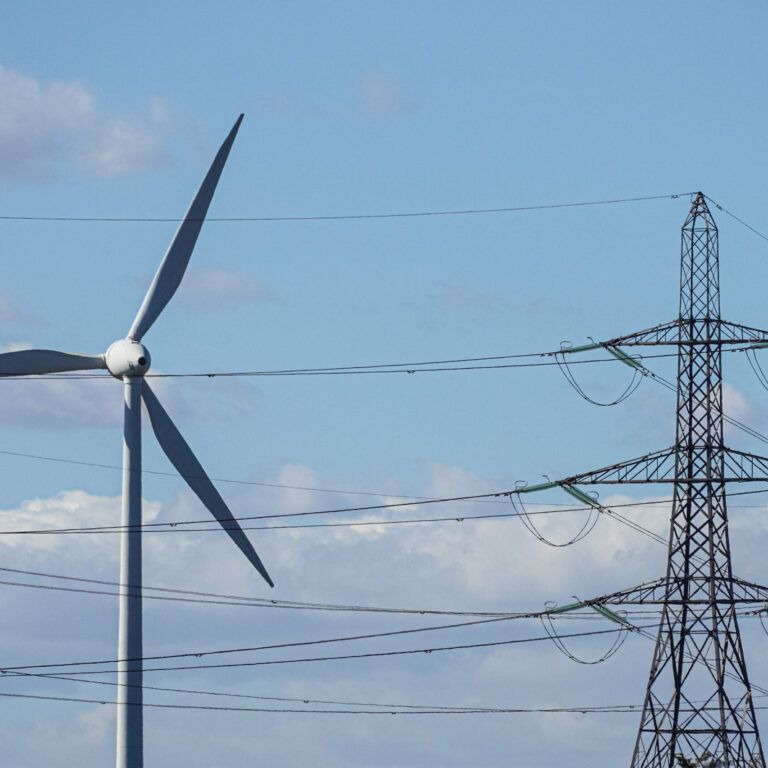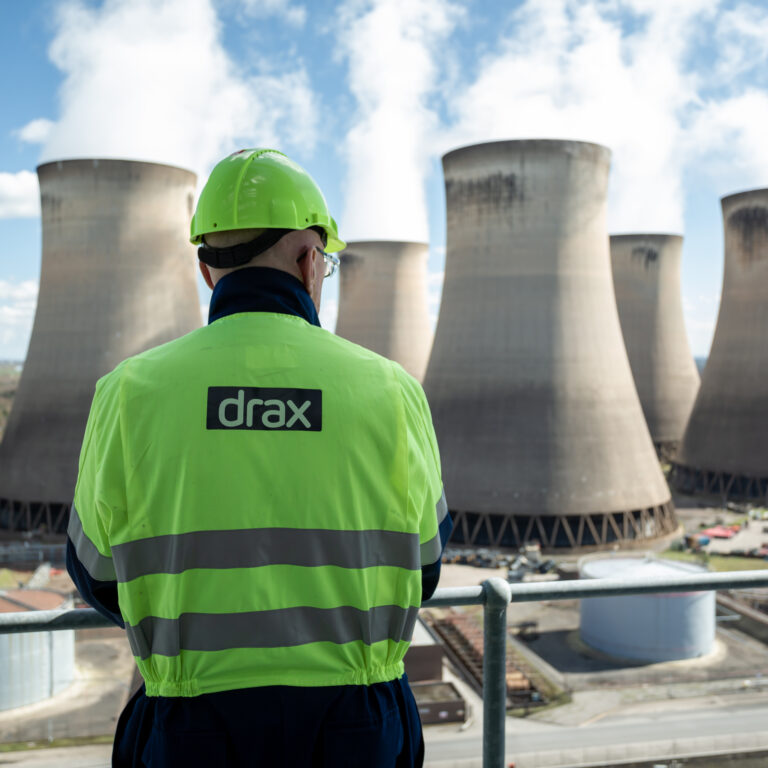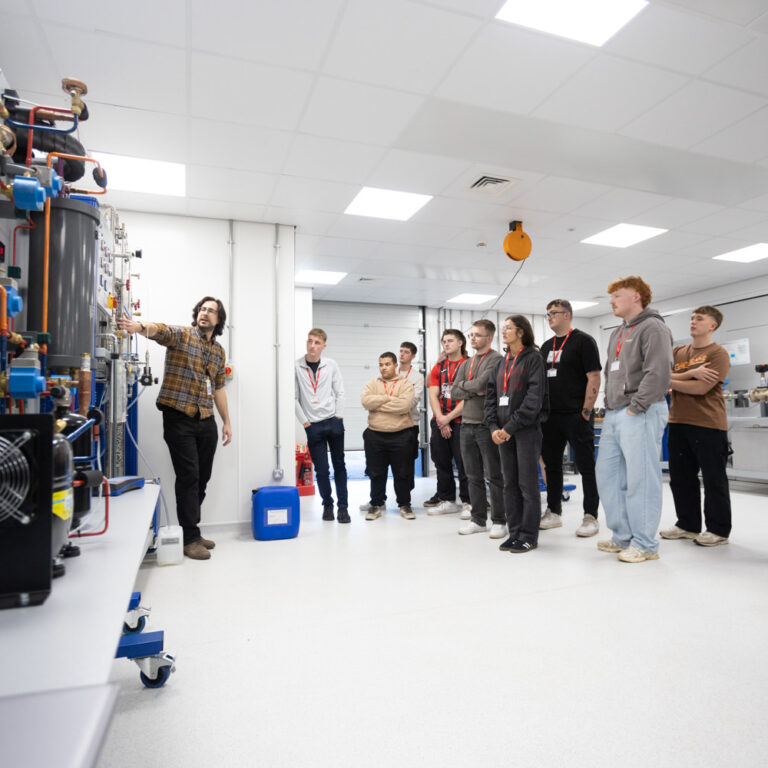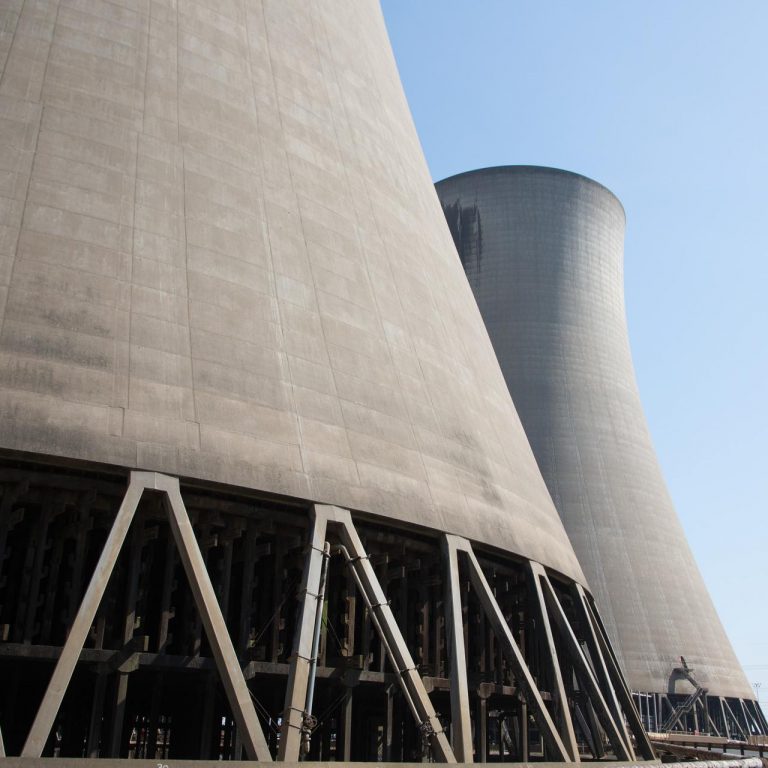- Drax has submitted plans to build its multi-billion-pound bioenergy with carbon capture and storage (BECCS) project at its North Yorkshire power station.
- Work to build BECCS could start as soon as 2024 with the creation of tens of thousands of jobs across the North
- Submission incorporates feedback obtained during two major public consultations
- Once operational Drax’s two BECCS units will permanently remove at least 8 million tonnes of CO2 each year from the atmosphere.
The company plans to invest £2bn in the 2020s in its plans to develop two bioenergy with carbon capture and storage (BECCS) units, creating and supporting thousands of jobs in the North and enabling the UK to lead the world in a vital new technology needed to address the climate crisis.
Work to build BECCS at Drax could start as soon as 2024 and once operational the two units combined will capture at least 8 million tonnes of CO2 per year, making it the largest carbon capture and storage project in power in the world.
Will Gardiner, Drax Group CEO said:
Drax CEO, Will Gardiner
“Drax’s BECCS project provides the UK with a once in a generation opportunity to kickstart a whole new sector of the economy and lead the world in a vital green technology needed to address the climate crisis.
“Drax aims to invest billions of pounds and create thousands of jobs developing BECCS in the UK, provided that the UK Government has in place policies to support the feasibility and delivery of negative emissions technologies.
“BECCS at Drax will not only permanently remove millions of tonnes of carbon dioxide from the atmosphere every year, but it will also generate the reliable, renewable power this country needs. No other technology can do both.”
The submission of its application for a Development Consent Order (DCO) to the Planning Inspectorate marks a major milestone in the project and follows two major consultations carried out by Drax, which sought to gain views from the public and key stakeholders on its BECCS plans.
Deploying BECCS on two of its generating units will support Drax’s plans to become a carbon negative company by 2030 – permanently removing more carbon dioxide from the atmosphere than is produced right across its operations.
Drax plans to source up to 80% of the materials and services it needs to build its BECCS project from British businesses. It recently announced a partnership with British Steel to identify opportunities to source the steel to build BECCS from its Scunthorpe and Teesside steelworks.
ENDS
Media contacts:
Ben Wicks
Media Manager
E: Ben.Wicks@Drax.com
T: 07761 525 662
Editor’s Notes
- The Planning Inspectorate accepted Drax’s application for a Development Consent Order for its UK BECCS project in June and will examine the plans before making a recommendation to the Secretary of State with a final decision expected next year.
- The world leading climate scientists at the UN’s IPCC say BECCS is a vital negative emissions technology required globally to reach the climate targets set out in the Parish Climate Accord in 2015.
- Negative emissions technologies are essential because they can permanently remove the CO2 accumulating in the atmosphere, which is causing temperatures to rise.
- Once up and running, Drax’s CO2 from Drax’s BECCS units would be transported via pipeline to the Endurance storage site, under the North Sea. This part of the process is being developed and by The Northern Endurance Partnership.
- Drax is part of the East Coast Cluster, a partnership between Zero Carbon Humber and Net Zero Teesside. The East Coast Cluster was selected by the UK government to be one of two priority industrial clusters to progress plans for carbon capture in the 2020s.
- The Humber and Teesside account for more than half the UK’s industrial emissions, so decarbonising these regions would have a major impact on the UK’s target to reach net zero by 2050.
About Drax
Drax Group’s purpose is to enable a zero carbon, lower cost energy future and in 2019 announced a world-leading ambition to be carbon negative by 2030, using bioenergy with carbon capture and storage (BECCS) technology.
Drax’s around 3,000 employees operate across three principal areas of activity – electricity generation, electricity sales to business customers and compressed wood pellet production and supply to third parties. For more information visit www.drax.com
Power generation:
Drax owns and operates a portfolio of renewable electricity generation assets in England and Scotland. The assets include the UK’s largest power station, based at Selby, North Yorkshire, which supplies five percent of the country’s electricity needs.
Having converted Drax Power Station to use sustainable biomass instead of coal it has become the UK’s biggest renewable power generator and the largest decarbonisation project in Europe. It is also where Drax is piloting the groundbreaking negative emissions technology BECCS within its CCUS (Carbon Capture Utilisation and Storage) Incubation Area.
Its pumped storage, hydro and energy from waste assets in Scotland include Cruachan Power Station – a flexible pumped storage facility within the hollowed-out mountain Ben Cruachan.
The Group also aims to build on its BECCS innovation at Drax Power Station with a target to deliver 4 million tonnes of negative CO2 emissions each year from new-build BECCS outside of the UK by 2030 and is currently developing models for North American and European markets.
Pellet production and supply:
The Group has 17 operational pellet plants and developments with nameplate production capacity of around 5 million tonnes a year.
Drax is targeting 8 million tonnes of production capacity by 2030, which will require the development of over 3 million tonnes of new biomass pellet production capacity. The pellets are produced using materials sourced from sustainably managed working forests and are supplied to third party customers in Europe and Asia for the generation of renewable power.
Drax’s pellet plants supply biomass used at its own power station in North Yorkshire, England to generate flexible, renewable power for the UK’s homes and businesses, and also to customers in Europe and Asia.
Customers:
Drax supplies renewable electricity to UK businesses, offering a range of energy-related services including energy optimisation, as well as electric vehicle strategy and management.
To find out more go to the website www.energy.drax.com






